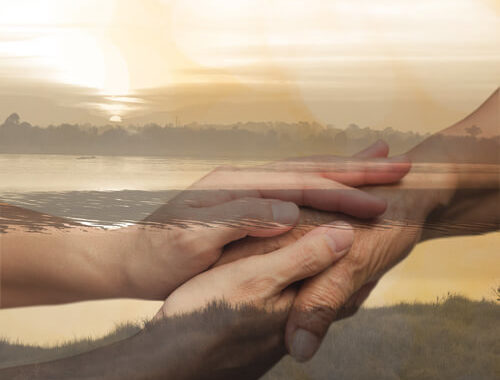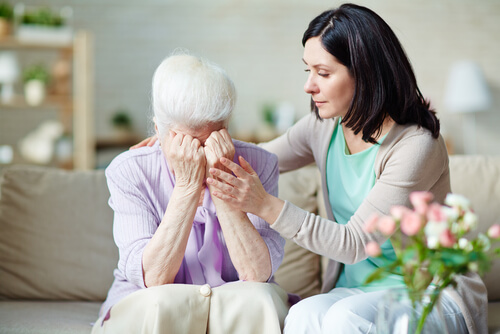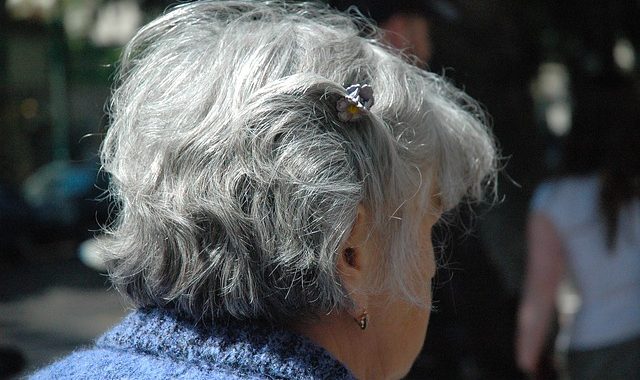
Giving Loved Ones Permission to Die
Cancer is an equal opportunity killer. It doesn’t consider age, gender, socioeconomic standing or family dynamics. It came calling in the early morning hours of Sept. 18, 2014, to claim my sister, and I paved the way for it to happen.
Preparing for End of Life
My oldest sister, three years my senior, lived next door to me. We were both teachers in the same school district. We rode back and forth together to work. On days we didn’t work, we usually talked on the phone at least once a day, or went next door to visit.
To say we were close would be an understatement.
Sis fought her first cancer battle with cervical cancer. Surgery, followed by radiation treatments, saw her defeat the cancer beast. She remained free of cancer for about five years. It took another form when it returned.
A diagnosis of rectal cancer led to more surgery and an extended round of chemotherapy. Sis fought through it, even continuing to work for about a year after. But she knew, in her heart , that she had not seen the last of this beast.
She approached me one day about making sure she could die according to her wishes, not by the dictates of a medical system that was too often cold and impersonal. We discussed at length her wishes regarding the end of her life. She asked me to be her voice when she couldn’t be.
Her husband couldn’t do it – she was the center of his universe. She knew I could; I’d done it before for my father and my mother.
I promised my beloved Sis that I would make certain to carry out her wishes. That was a promise I kept, the consequences of which I live with every single day.
Medical Power of Attorney
Sis and I met with an attorney to get all the legal ins-and-outs of a durable medical power of attorney. With all our questions answered, she and I had several discussions on the specifics of what she wanted to be done – and not done – when she faced the end of her life.
As she knew it would, the cancer beast returned. It took the form of bladder cancer this time. What followed was more surgery, a round of dialysis and more intensive chemotherapy. The treatments weren’t as effective in this round, and Sis knew that she would not survive. But she continued to fight, enjoying as much time as she could with her family and friends.
A pathological fracture in her left hip signaled the beginning of the end; it left no doubt that the beast had spread to her bones. More surgery followed to replace the broken hip. This time, she had no choice but to enter a skilled nursing facility after hip surgery. She simply could not receive the care she needed at home.
The nursing facility was aware that I held my sister’s medical power of attorney, so they called me on the night she went into kidney failure. She went by ambulance to the hospital’s emergency room, and that’s where I joined her.
Bringing in Hospice
The emergency room physician wanted to transport Sis to a massive teaching hospital 60 miles north where she could receive dialysis. I could tell by the look on Sis’s face that she didn’t want to do this. Her eyes met mine, and I knew it was time to fulfill my promise. I told her if she wanted to fight it, we would fight it tooth-and-nail with everything we could. If she would prefer to let nature take its course, we would do that.
She looked at me, her face resolute and said, “I’m so very tired.”
I told her not to worry, that I would take care of it. After a conversation with her husband, I told the doctor to cancel the transfer to the other hospital. We were returning to the skilled nursing facility and bringing in Hospice.
Sis drew her final breath about a month later, in the early morning hours, with her husband and daughter at her side. Quietly, peacefully, with all the dignity her magnificent spirit deserved and her life’s contribution to the world around her earned.
It was because of the direction of her physician, a man she’d known for 30 years, the Hospice nurses and my oversight that my sister could die on her terms. The staff of the skilled nursing facility was fantastic, giving deference to me when Sis could no longer speak for herself and following the instructions of Hospice personnel.
Hospice people are the ones trained in dying with dignity, especially with people battling the cancer beast. They’ve looked the beast in the eye over and over, and while a life may end, the beast doesn’t get to claim a victory.
When a person leaves this life with peace and dignity, she wins. Hospice never settles for a loss.
In the Aftermath
Losing a sister is never easy. Knowing that you lost your sister because of actions you took makes it that much more difficult. Even after Sis was gone, Hospice was a voice I could call on who understood what I meant when I said I let my sister die.
Few can understand it if they haven’t been there and done that. Hospice understands, and my Sis and I are eternally grateful for it.
Article submitted by Bobbie F. of Mississippi.




